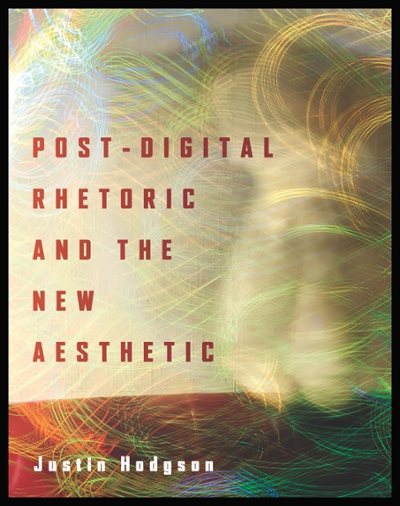The proliferation of smart devices, digital media, and network technologies has led to everyday people experiencing everyday things increasingly on and through the screen. In fact, much of the world has become so saturated by digital mediations that many individuals have adopted digitally inflected sensibilities. This gestures not simply toward posthumanism, but more fundamentally toward an altogether post-digital condition—one in which the boundaries between the “real” and the “digital” have become blurred and technology has fundamentally reconfigured how we make sense of the world.
Post-Digital Rhetoric and the New Aesthetic takes stock of these reconfigurations and their implications for rhetorical studies by taking up the New Aesthetic—a movement introduced by artist/digital futurist James Bridle that was meant to capture something of a digital way of seeing by identifying aesthetic values that could not exist without computational and digital technologies. Bringing together work in rhetoric, art, and digital media studies, Hodgson treats the New Aesthetic as a rhetorical ecology rather than simply an aesthetic movement, allowing him to provide operative guides for the knowing, doing, and making of rhetoric in a post-digital culture.

 The College of Arts
The College of Arts